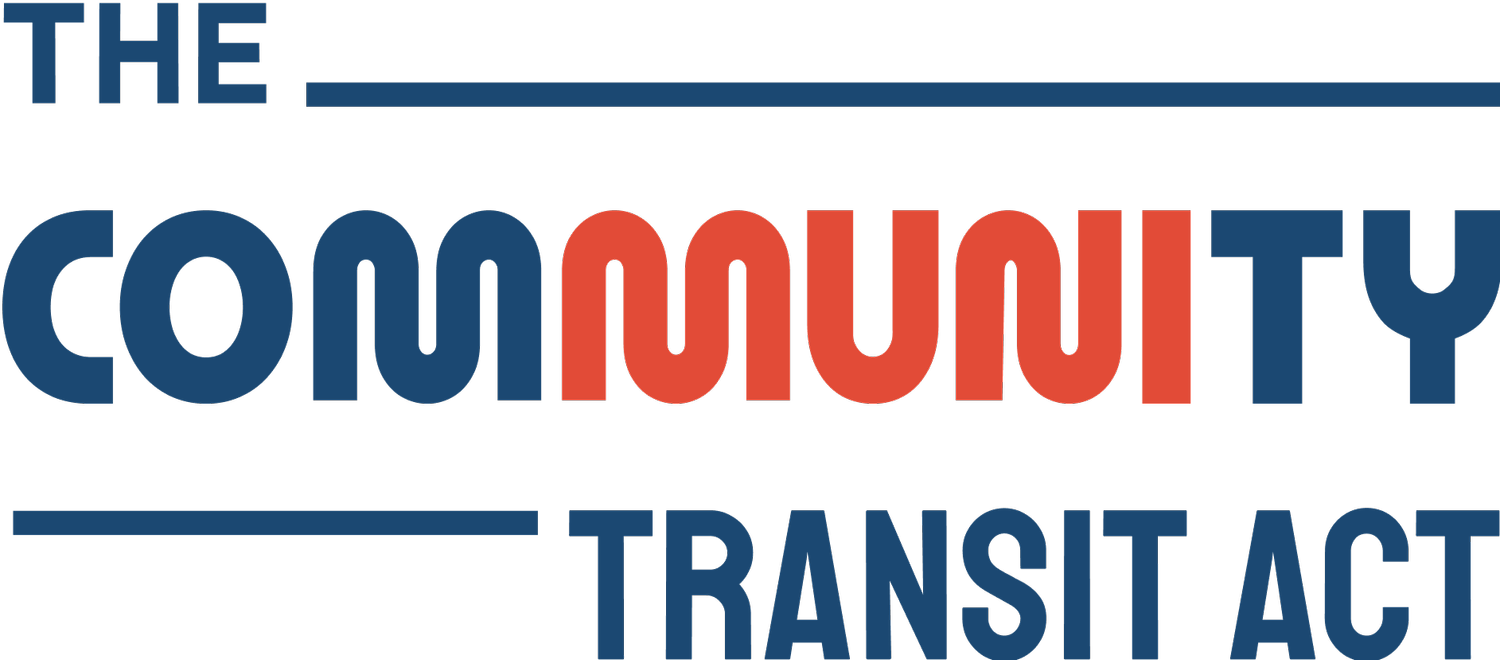1. The Measure
-
The ComMUNIty Transit Act is a proposed ballot initiative to add a new gross receipts tax on ride-hail platform corporations like Uber, Lyft and Waymo.
The funds will be allocated to SFMTA to be used for:
· Preventing Muni service cuts and expanding service
· Improving Muni access to public schools, libraries, and parks – by increasing route frequency, expanding routes or adding new routes
· Maintaining and expanding fare discount programs for youth, seniors, people with disabilities and low-income people (like Free Muni for Youth)
-
To make the November 2024 ballot need to gather about 10,000 valid signatures from San Francisco voters by July 8th.
-
The ComMUNIty Transit Act is an effort by a coalition of advocates and allies in support of safe and sustainable transportation in San Francisco. The ballot measure’s proponents include Chris Arvin, Vice Chair of the SFMTA Citizens' Advisory Council; Kat Siegal, Chair of the San Francisco County Transportation Authority’s Community Advisory Committee; and Lian Chang, whose previous advocacy includes supporting Vision Zero at Walk San Francisco. All affiliations are shared for identification purposes only.
-
This measure will require a simple majority of over 50% of voters to pass.
-
While it is not feasible to make a fully accurate estimate due to very limited data on ride-hail revenue and trips, we have made estimates based off of existing San Francisco TNC tax revenue and data on market-share between companies like Lyft and Uber. Our estimate is that this tax will generate $20 million to $30 million annually in new revenue. If our measure does qualify for the ballot, the City Controller will provide their own estimate before the election.
-
The revenue is given to the SFMTA for the operation of Muni.
SFMTA may use the funding for these purposes, at the agency’s discretion:
· Maintaining or increasing Muni service levels
· Improving Muni access to parks, libraries and schools, by increasing frequency of routes, adding new routes or expanding routes
· Maintaining or expanding discounted fare and fare-free programs for youth, people with disabilities, and low-income riders.
We also allow at most 2% of the revenue to go to the San Francisco Tax Collector, only as needed for costs related to administering this tax.
-
Find our measure on the Department of Elections at the Potential local ballot measures page
2. The Tax
-
The tax is on the gross receipts (e.g., total revenue) that a ride-hail platform company earns within the city. We are referring to it as the Ride-Hail Platform Gross Receipts Tax.
Any company that charges money to connect passengers with drivers using a personal vehicle is subject to the tax, as well any company that charges for rides in autonomous vehicles.
Examples of companies that would likely be subject to the tax include Uber Technologies, Inc., Lyft, Inc., and Waymo LLC.
The tax does not apply to ride-hail drivers, nor does it apply to other transportation such as taxis or privately-operated transportation.
-
The rate of the tax is based on the annual revenue a company earns in the City from ride-hail platform business activities:
· Revenue at $500,000 or under is exempt.
· 1% of revenue between $500,000.01 and $1,000,000
· 2.5% of revenue between $1,000,000.01 and $2,500,000
· 3.5% of revenue between $2,500,000.01 and $25,000,000
· 4.5% of revenue over $25,000,000
-
No, companies cannot reduce their tax burden by moving their offices outside of the city. While some other gross receipts taxes in San Francisco are apportioned by payroll, meaning the companies are taxed on revenue made outside of San Francisco based on the portion of their employee payroll that is based in San Francisco, this new tax is not apportioned by payroll. The amount of revenue taxed is the amount of revenue earned from ride-hail platform business in the city.
-
No. The Ride-Hail Platform Gross Receipts Tax is in addition to all other city taxes, and does not modify or replace any existing city taxes or allocations.
-
The tax would be in effect starting January 1, 2025.
-
If the cost of the Ride-Hail Platform Gross Receipts Tax was fully passed on to customers at the highest rate, a customer would only pay an additional $0.45 on a $10 fare.
-
Yes. In 2018, Washington, D.C. raised their gross receipts tax rates on ride-hail companies from 1% to 6% to raise new funding for their transit system.
Methods of taxation on ride-hail differ across the country. But, as an example of a different kind of tax, New York City imposes an 8.875% sales tax on all ride-hail rides, in addition to other surcharges. Currently, in San Francisco, ride-hail companies pass on the 3.25% per-ride surcharge to riders.
-
The tax imposed on ride-hail companies by our measure is an increase in the city’s existing gross receipts tax, rather than a new kind of tax. Ride-hail companies, like all other businesses in the city, are already required to pay the city’s gross receipts tax, which is a tax on a company’s total revenue. Our measure would raise the amount that ride-hail companies are required to pay, and the new revenue would go directly towards funding Muni operations.
The TNC tax imposed by Prop D in 2019 was a per-ride surcharge at 3.25% of the net fare of each TNC ride, and is capped at that rate at the state level. Most of the revenues from the per-ride surcharge go towards funding transportation infrastructure, whereas our tax would fund day-to-day Muni operations. This is important, as Muni faces a significant deficit in operational funding, and will likely have to cut service when federal pandemic aid runs out in 2026.
